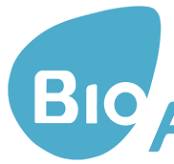Steel, Infrastructure and Automotive to ensure robust demand on the back of rapid urbanization, growth in middle class in India
Forecasts Zinc Demand in Solar to Grow by 43%, Wind to Double by 2030 and Energy storage is forecasted to grow sevenfold over five years
Zinc College, the international event involving nearly 100 delegates from more than 20 countries being held at Zinc City, Udaipur underlined the role of zinc across various industries
Zinc in Automotive and Infrastructure:
• India’s growing middle class is driving demand for zinc in automotive manufacturing, with the zinc demand in India forecasted to rise significantly by 2030.
• Automotive Bodies Consume 700,000 Tons of Zinc Annually. Intensity of Galvanized Steel Use in Automotive Market is forecasted to grow by 22%
Emerging Sectors
• The battery energy storage market could reach 422 GWh by 2030, with zinc poised to be a key element in the development of long-lasting and sustainable energy storage solutions.
• Global offshore wind capacity is projected to reach 1000 GW (gigawatt) by 2050, and zinc is set to play a key role in protecting and extending the lifespan of the steel infrastructure used in these developments.
• Solar PV installed capacity is expected to increase more than tenfold in the next three decades. Zinc in solar is forecast to grow 43% over the next five years.
• Zinc in wind energy is expected to double, while zinc use in energy storage could grow sevenfold over the same period.
Udaipur, September 17, 2024: The International Zinc Association (IZA) forecasts a significant rise in zinc demand in India by 2030, driven by emerging sectors like renewable energy and battery technology, alongside growing demand in existing industries such as infrastructure, steel expansion, and automotive. Globally, zinc demand is expected to grow by 43% in solar power applications, with the wind energy sector set to double by 2030. Energy storage solutions are projected to see a sevenfold increase over the next five years. India, as the world’s fastest-growing economy, is witnessing a similar surge in zinc consumption across these critical sectors.
This comes as India is hosting Zinc College 2024, an international event organized by the International Zinc Association and hosted by Hindustan Zinc, India’s largest and the world’s second-largest integrated zinc producer. Held in Zinc City, Udaipur, this exclusive 5-day event brings together nearly 100 delegates from over 20 countries, featuring global leaders and innovators discussing zinc’s crucial role in creating a sustainable, low-carbon future and driving best practices for the zinc industry worldwide.
India’s record-breaking steel production, coupled with rapid infrastructure growth, presents a pivotal opportunity for zinc. Incorporating zinc into infrastructure projects can significantly reduce the annual corrosion costs, which amount to nearly 5% of India’s GDP. The automotive industry, another key sector, is following global trends, with a forecasted rise in demand for galvanized steel by 2030, driven by the growing middle-class aspirations.
One of the key discussions at Zinc College is focused on innovations to reduce carbon emissions and promote low carbon ‘green’ zinc products, with IZA members Hindustan Zinc, Boliden, Teck, and Nyrstar taking the lead. The event also fortifies the role of zinc in the energy storage solutions worldwide as zinc-based batteries are a stronger alternative to lithium-based batteries. Zinc in energy storage is forecasted to grow sevenfold over five years.
Speaking at the event, Mr. Arun Misra, Chairman of the International Zinc Association and CEO Hindustan Zinc Limited, said, “We are at a critical juncture where zinc will play a decisive role in reducing carbon emissions, supporting renewable energy infrastructure, and ensuring sustainability for future generations. Zinc is essential for everything around us—from buildings to batteries, solar panels, wind turbines, and automobiles. India’s demand for zinc is set to grow rapidly, driven by urbanization and the need for durable infrastructure. Zinc College 2024 is a landmark event, laying the foundation for a more sustainable and innovative zinc ecosystem.”
Andrew Green, Executive Director of the International Zinc Association, echoed this sentiment, stating, “India’s demand for zinc is ahead of the worldwide consumption patterns. Combined with the rise in emerging applications, we at International Zinc Association are optimistic about the prediction on zinc demand in India to double in under 10 years. Zinc College in India is a milestone for the entire industry and signifies India’s prominence in the zinc manufacturing sector. The collaborations and discussions here will shape zinc’s role in the global economy, especially in supporting zinc’s critical role in decarbonizing industries like wind, solar, automotive, and infrastructure is more relevant than ever.”
The IZA has been steadfast in promoting zinc’s use across industries, and this year’s focus is on developing a comprehensive decarbonization plan for the entire zinc value chain. This provides zinc producers with an opportunity to lead the industry’s sustainability efforts.
Zinc College 2024 is particularly relevant for professionals across the zinc value chain, offering valuable insights for both seasoned industry veterans and newcomers. Attendees explored the latest trends and advancements in zinc while visiting Hindustan Zinc’s state-of-the-art mining and smelting facilities across Rajasthan. The event also featured engaging sessions, workshops, and networking opportunities, fostering collaborations and knowledge-sharing among global zinc industry leaders.
 Newspatrolling.com News cum Content Syndication Portal Online
Newspatrolling.com News cum Content Syndication Portal Online







